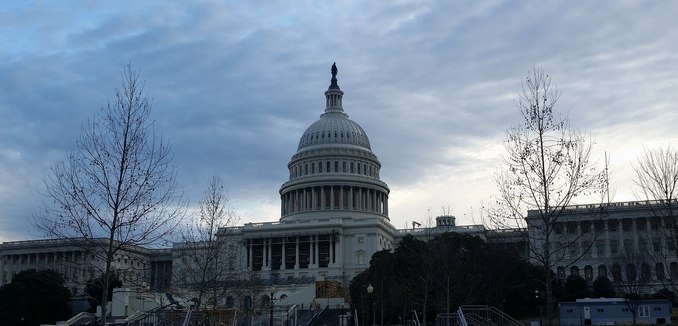Prompted by the United Nations Human Rights Council’s decision to create a database of Israeli companies to “blacklist,” a bipartisan bill to oppose boycotts of Israel was introduced in the House of Representatives on Thursday.
The Israel Anti-Boycott Act is sponsored by Reps. Juan Vargas (D – Calif.), Peter Roskam (R – Ill.), Lee Zeldin (R – N.Y.), and Brad Sherman (D – Calif.), and seeks “to further combat the anti-Israel boycott, divestment and sanctions (BDS) movement,” according to a joint statement released by the congressmen. “Over the past several years, a growing number of countries have sought to isolate and delegitimize Israel through BDS actions.”
The statement further elaborated:
Last year, the United Nations Human Rights Council (UNHRC) targeted Israel with a commercial boycott, calling for the creation of a database—akin to a “blacklist”—of companies that operate in or have business relationships beyond Israel’s 1949 Armistice Lines, including East Jerusalem. The U.S. State Department expressed opposition following the UNHRC resolution’s adoption in March 2016.
This week, building upon the “blacklist” resolution, the UNHRC is considering a resolution to withhold assistance from and halt trade with “territories occupied since 1967”, including the West Bank, East Jerusalem and the Golan Heights. Under the resolution, businesses who engage in economic activity in these areas could face civil or criminal legal action.
The bill would express Congress’ strong opposition to any such attempts to single Israel out for boycotts, and would change the Export Administration Act of 1979 to “prohibit boycotts or requests for boycotts imposed by international governmental organizations against Israel.” The legislation would also require that the Export-Import Bank consider an applicant’s support or non-support of the BDS campaign when evaluating the issuance of credit.
“The BDS movement is nothing more and nothing less than the latest attempt by Israel’s enemies to destroy the Jewish State. After their repeated military conquests ended in failure, they have now turned to economic means in the hopes of achieving the same outcome,” Congressman Roskam explained. “Thankfully, the United States Congress – and the American people – will not stand for it. We will oppose all forms of economic warfare against Israel and Israelis.”
“The United States must make it clear that it will not tolerate any international efforts to boycott, divest from, or sanction Israel,” Congressman Vargas stated. “Opponents of Israel cannot continue to threaten its security or force a solution between Israelis and the Palestinians. We must continue to support Israel and reaffirm our long-standing commitment to strongly oppose any efforts that delegitimize and undermine our ally.”
Parallel legislation has been introduced in the Senate, sponsored by Foreign Relations Committee ranking member Sen. Ben Cardin (D – Md.) and Sen. Rob Portman (R – Ohio).
Many leaders of the BDS campaign, which was launched by Palestinian groups in 2005, have publicly affirmed that they seek Israel’s destruction. BDS co-founder Omar Barghouti, an opponent of the two-state solution, said in 2014 that Palestinians have a right to “resistance by any means, including armed resistance,” while leading activist As’ad Abu Khalil acknowledged in 2012 that “the real aim of BDS is to bring down the state of Israel.”
[Photo: soccerdhg / Flickr]




